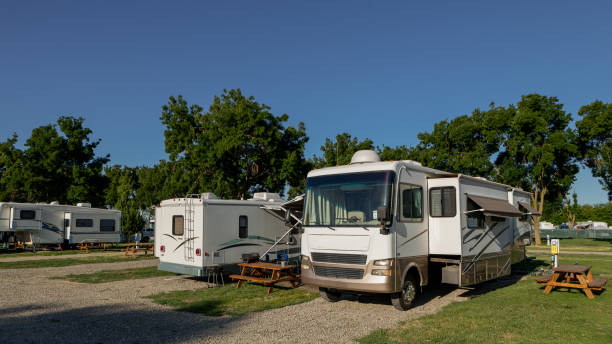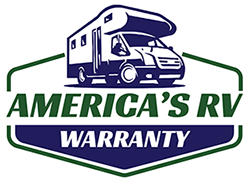
RV traveling is quickly gaining popularity in the U.S., and it’s easy to see why. There are so many benefits of road-tripping with your RV over catching flights or driving and staying at hotels. For one, RVs are essentially homes on wheels, which means you bring every convenience of your home with you—a comfortable bed, a clean bathroom, and all your belongings or inventory conveniently packed and available for use.
When you think about going on holiday, there are so many costs involved—flight tickets, accommodation, food, etc. While you’ll still spend money on some of these things when using an RV, the costs don’t come anywhere close to those of traditional travel. For instance, parking in private RV parks will cost about $33 per night, while a single hotel room costs around $129 per night.
Moreover, RV traveling provides freedom, unlike rigid hotel bookings and scheduled flights. Feel like spending an extra day by that beautiful lake? No problem. Want to change your destination on a whim? Easy.
While these benefits sound great, with so many RV options available, where do you even start? This RV buying guide will discuss the various types of RVs, including their features, pros, and cons, so you can choose one that best suits your needs.
When considering buying a used or a new RV, the main determinant is usually budget. New RVs can be extremely expensive. Therefore, if you have a tight budget, you might consider a used but well-maintained RV. On the other hand, if you’re looking for the latest designs, features, and technologies in an RV, a new one is the way to go.
There are two main types of RVs—motorized and towable.
Motorized RVs or motorhomes are exactly what their name suggests: vehicles you live in and drive. While a bit more pricy than the towable RVs, motorized RVs offer the convenience of having just one structure, which can be easier to drive around.
As for towable RVs, these rigs don’t have an engine, so you must hitch them to your vehicle when traveling. Towing an RV can be difficult, especially if you aren’t familiar with maneuvering an extension behind you. However, towable RVs have several advantages over motorhomes. For instance, towable RVs are less expensive to buy and maintain because they lack an engine. Additionally, towable RVs allow you to set up in campsites and still have a separate vehicle for exploring the new area without moving your entire living quarters.
Motorhomes come in the following three types.
When you think of luxury RV traveling or living, Class A motorhomes fit this description. These RVs are large (between 21 and 45 feet long) and have amenities that rival houses, like laundry machines, separate primary bedrooms, and full bathrooms. They can accommodate up to 10 people and weigh over 200,000 pounds.
Because of their size, these motorhomes can be intimidating to drive and park, especially on narrow roads and parking areas. It’s often easier to tow your car along so that once you reach your destination, you can use it to easily explore your surroundings. Additionally, due to their “luxury” status, these RVs are extremely expensive to purchase and maintain in terms of fueling, insuring, and repairing mechanical failures.
Much smaller than Class A, most Class B motorhomes are built on a van chassis and may be called campervans. However, these recreational vehicles are still big enough that you can comfortably walk upright in them. They feature several facilities, such as a combined bathroom setup, sleeping space, a small galley kitchen, and convertible dining.
Due to their limited space, Class B RVs can only accommodate two to four people. Nonetheless, their smaller size makes them more convenient to drive around and find parking.
These motorhomes offer the best of both Class A and B motorhomes. They are as maneuverable as Class B, being built on a cutaway chassis, and contain many features that Class A has but on a smaller scale.
Class C motorhomes offer more space than Class B to accommodate amenities and an over-the-cab interior area that can serve as an additional sleeping space. They typically have space for up to eight people.
Examples of towable RVs include the following.
These are the most spacious and largest towable RVs (usually as long as 20 to 40 feet). Because of their size and shape, you can only tow these trailers via pickup trucks or conversion vehicles.
Fifth-wheel trailers typically have many of the same features as Class A RVs, like full-size bathrooms, kitchens, sleeping compartments, and storage. Their goose-neck and slide-out features also provide additional living space. While not as big as Class A, fifth-wheelers can accommodate up to eight people.
At about 10 to 40 feet long, travel trailers attach to the towing vehicle via a standard ball hitch receiver. These RVs come in different shapes and sizes with varying features. However, most travel trailers usually feature full bedrooms, a living space, a kitchen, and a bathroom.
Commonly referred to as toy haulers, these RVs are essentially fifth-wheelers or travel trailers. Sport-utility trailers contain all the features of these trailers but also come equipped with garage-styled storage for outdoor “toys” or equipment like motorcycles, ATVs, jet skis, and more.
This RV rides on top of the bed of a truck and doesn’t have any wheels of its own. The size of these campers is typically as big as your truck, so they may have limited space. Nonetheless, they feature sleeping space, small cooking and dining facilities, and some storage space.
As the name suggests, these RVs can pop up and sideways to create temporary sleeping spaces for up to six people when camping. The hard shell compartment usually houses the bathroom and kitchen facilities. You can tow these campers using an SUV, a sedan, or a minivan through a ball hitch receiver.
Once you buy your RV, protect yourself from the unexpected repair costs that come with RV ownership. At America's RV Warranty, we offer extended warranty coverage for all types of RVs, so you don’t have to pay for mechanical failures and breakdowns out-of-pocket.
For more information on how a plan from America’s RV Warranty can help you, get a free quote today.
